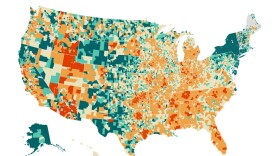A Wake County superior court judge is reviewing whether the State Board of Education is doing its part to provide every public school student with the opportunity of a sound, basic education.
The three-day hearing that began Tuesday is part of a longstanding lawsuit known as the Leandro case. The case dates back to 1994 when five families from low-wealth counties filed a lawsuit against the state arguing that their children didn’t have the same opportunity as students in wealthier districts.
Since the court ruled in favor of those families, Judge Howard Manning has been monitoring the state’s progress in providing equal opportunity. Earlier this year he asked the State Board of Education to present a “definite plan of action” to help improve student performance and bring low test scores up.
“If you have the teacher and the principal and if you have the resources you need in each classroom, you are constitutionally compliant and children will learn,” he said. “And don’t try to tell me that this is the case in North Carolina because it’s not.”
Bill Harrison, former State Board of Education chairman, testified Tuesday that the state does not have effective teachers and principals in every classroom. He also said there’s a lack of support in resources.
“I think it’s the inaction of the General Assembly’s over the years…it doesn’t support public schools,” he said.
Rebecca Garland, Deputy State Superintendent, testified that the state Board of Education has worked hard to improve student outcomes. She said the state is able to collect better data today about how teachers and students perform.
She added that students have enough resources to be able to access a sound, basic education.
“You could always use more resources, but I’m not sure all of the resources that are currently available are being used as effectively as we want them to be used,” she said.
Garland helped develop the plan Manning requested, which lawyers representing local school boards said does not go far enough in correcting "educational deficiencies."
The hearing is expected to last until Thursday.





